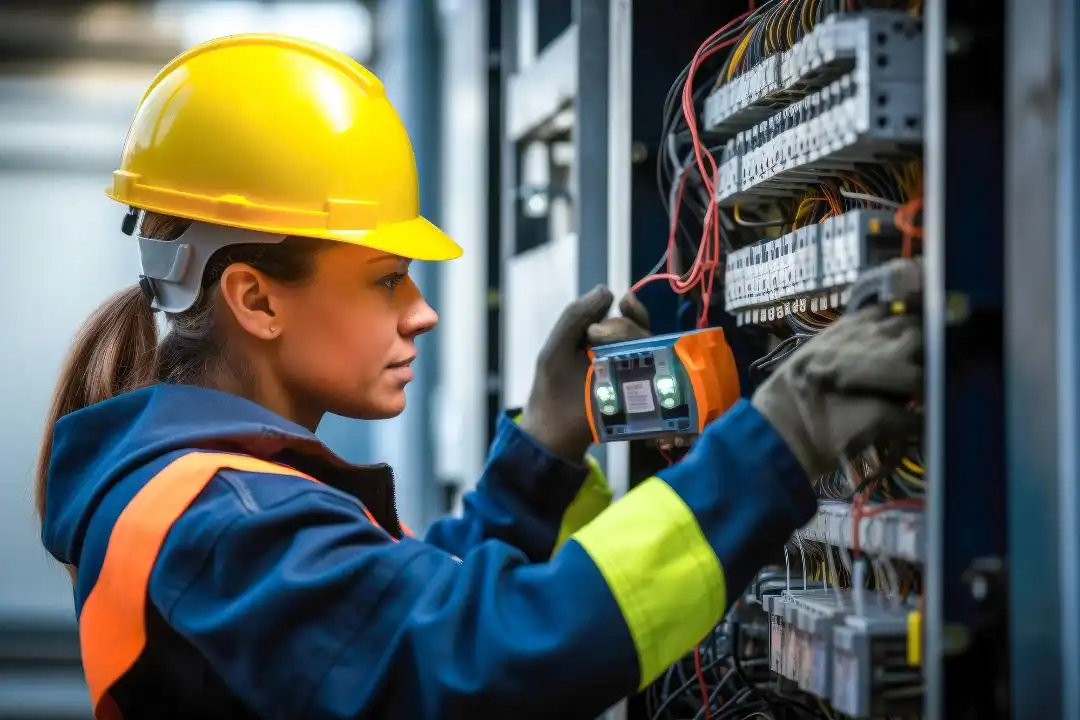NEWS
Circuit Protection In Commercial Settings: What You Need To Know

In any commercial structure, circuit protection is of paramount importance. It’s an essential component that ensures the safe operation of electrical systems. Without effective circuit protection, businesses could face equipment damage or even fire hazards.
Understanding circuit protection is not just for electricians. If you’re involved in managing a business space, it’s crucial for you, too. This article will guide you through what you need to know about circuit protection in such settings.
Understanding Circuit Protection
In essence, circuit protection and breakers are proactive measures designed to safeguard electrical systems. They ensure that the flow of electricity within a system does not exceed safe levels. When the flow of current is too high, it can lead to electrical overloads or short circuits, both of which can cause significant damage.
The primary function of circuit protection devices is to automatically interrupt this flow of current. They’re designed to act swiftly the moment the current exceeds a predetermined safe level. This immediate response helps to minimize the risk of damage to the electrical system and any devices connected to it.
In the context of a business space, understanding the basics of circuit protection is crucial. It’s not just about preventing damage to equipment, but also about ensuring the safety of the people within the premises.
Types Of Circuit Protection Devices
Various circuit protection devices are employed to ensure the safety and efficiency of electrical systems. Each device has a unique role and is designed to handle specific electrical issues. Let’s explore these devices in more detail.
- Fuses: A fuse is a simple and cost-effective device that provides overcurrent protection. It has a metallic wire or strip that melts down when excessive current flows through it, disrupting the circuit and averting potential damage.
- Circuit Breakers: These are electrical switches that operate automatically. They’re designed to shield an electrical circuit from being damaged by too much current. Unlike fuses, circuit breakers can be reset manually or automatically to resume normal operation.
- Ground Fault Circuit Interrupters (GFCIs): GFCIs are designed to protect people from electric shock. They monitor the imbalance of current between the ungrounded (hot) and grounded (neutral) conductors of a circuit. If an imbalance is detected, the GFCI will disconnect the circuit.
- Arc Fault Circuit Interrupters (AFCIs): AFCIs provide protection against arc faults, which are dangerous electrical problems that standard circuit breakers and fuses cannot prevent. They detect potentially hazardous arc faults and interrupt the circuit.
Choosing the right type of circuit protection device depends on the specific needs of your business premises.
The Importance Of Circuit Protection
Circuit protection in commercial settings is not just about adhering to regulations—it’s about ensuring the safety of people and the longevity of equipment. Here are some key reasons why circuit protection is indispensable:
- Safety: The primary purpose of circuit protection is to safeguard individuals in the building. Electrical faults can lead to serious hazards such as fires or electric shocks. For instance, a short circuit could potentially cause a fire if not promptly detected and interrupted by a circuit protection device. This not only poses a risk to individuals present but can also lead to extensive property damage.
- Equipment Protection: Commercial spaces often house expensive electrical equipment, from computers and servers to specialized machinery. An electrical overload can cause severe damage to these devices, leading to costly repairs or replacements. Circuit protection devices help prevent such scenarios by interrupting the electrical flow when it exceeds safe levels, thereby protecting the equipment from damage.
- Compliance With Regulations: Business facilities are required to adhere to certain electrical safety standards and regulations. These may vary by location, but having proper circuit protection in place is a universal requirement. Non-compliance can lead to penalties, increased insurance costs, and even business closure in severe cases.
- Reliability: Unexpected electrical issues can cause downtime, disrupting business operations. With proper circuit protection, businesses can minimize these disruptions, ensuring smoother operations. For example, a restaurant kitchen with effective circuit protection can avoid unexpected equipment failures during peak hours, providing uninterrupted service to its customers.
By understanding the significance of circuit protection, businesses can take proactive steps to ensure safety, protect their investments, and maintain reliable operations.
Choosing The Right Circuit Protection Devices
When it comes to selecting the appropriate circuit protection devices for your commercial spaces, the key factors to consider include:
- Business Equipment: Different devices require different types of protection. For instance, sensitive electronic equipment may require more sophisticated protection than basic lighting fixtures.
- Electrical Load: The amount of current a circuit carries can influence the type of protection needed. Circuits with higher loads may require heavy-duty protection devices.
In addition to these factors, it’s recommended that circuit protection devices be installed and maintained by qualified professionals. This not only ensures their effectiveness but also guarantees compliance with safety standards.
Final Thoughts
Circuit protection is a fundamental aspect of managing a commercial space. It ensures the smooth operation of electrical systems, protects valuable equipment, and helps businesses comply with safety standards.
Understanding the basics of circuit protection and choosing the right devices for your needs can significantly enhance the efficiency of your operations. So, the next time you flick a switch or plug in a machine, remember the intricate system working behind the scenes, bolstering business performance.
Kenneth is a proud native of sydney, born and raised there. However, he pursued his education abroad and studied in Australia. Kenneth has worked as a journalist for almost a decade, making valuable contributions to prominent publications such as Yahoo News and The Verge. Currently, he serves as a journalist for The Hear Up, where he focuses on covering climate and science news. You can reach Kenneth at [email protected].










